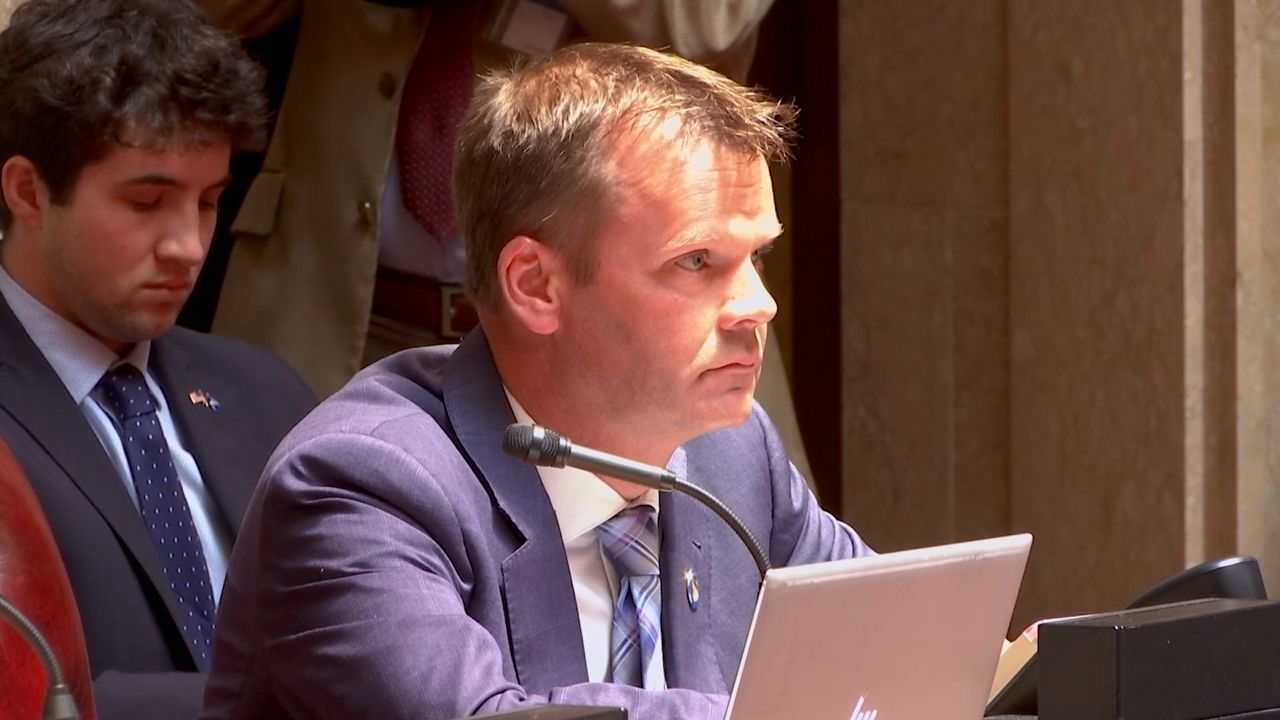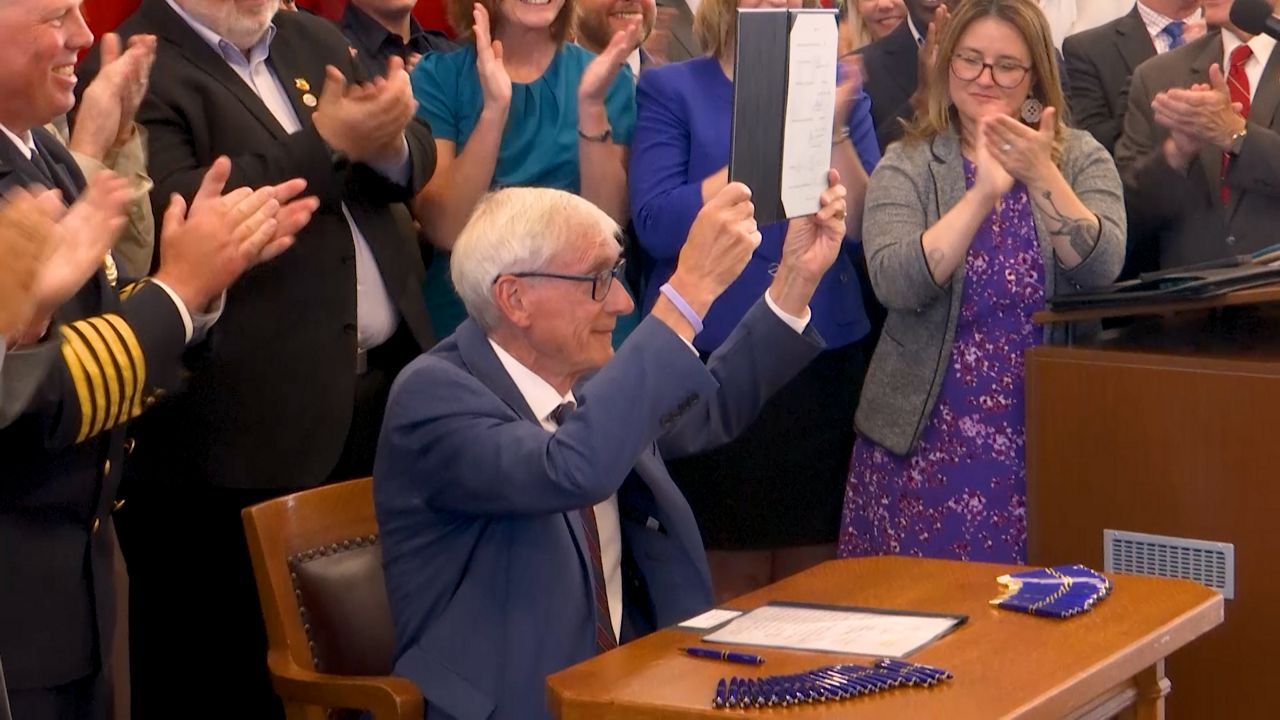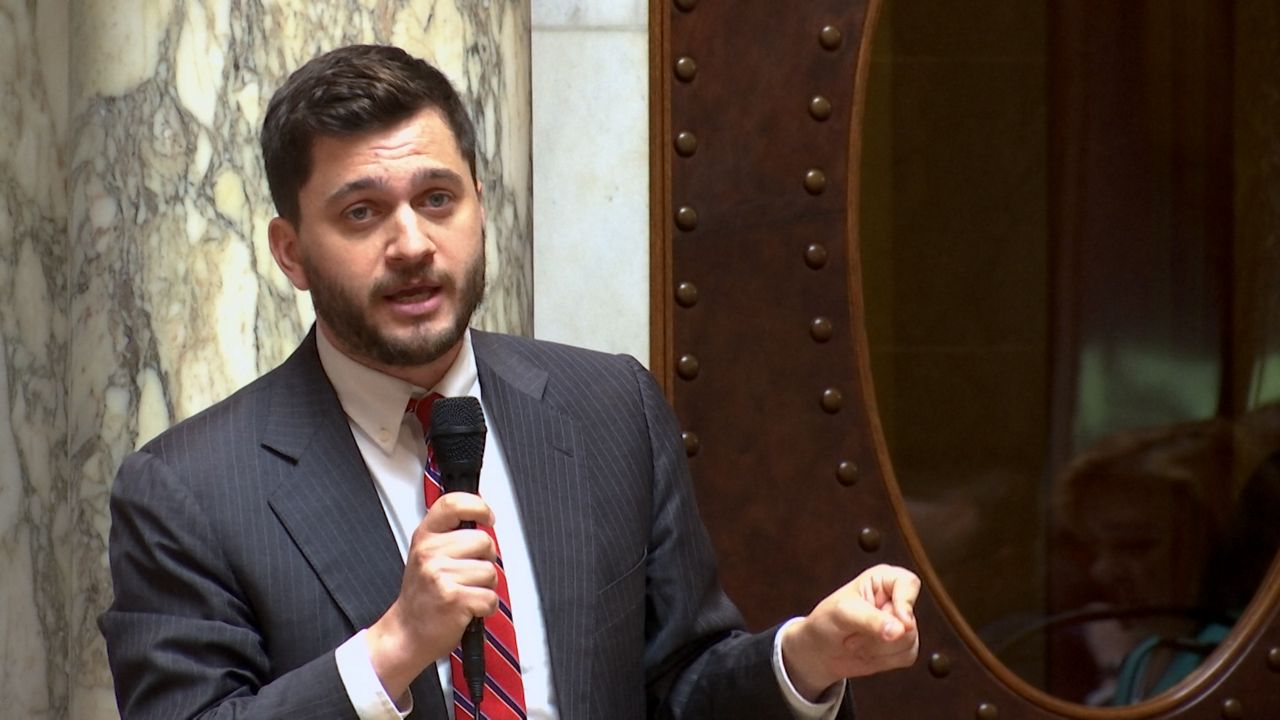MADISON, Wis. — State lawmakers in both the Senate and Assembly passed a budget for Wisconsin this week, which means the next stop for the two-year spending plan is the governor’s desk.
With the nearly $98 billion spending plan in his hands, Democrat Gov. Tony Evers has three options: sign the whole budget, veto the whole budget, or issue partial line-item vetoes.
So far, the governor has hinted at issuing several partial vetoes, which he did in his first term, including 50 line-item changes during the last biennium.
A 63-34 party-line vote from the Assembly Thursday sent the budget over its last legislative hurdle. Before the vote, Democrats called for several last-minute changes but were unsuccessful, as they lacked enough votes to stop the plan Republicans have spent months rewriting.
“Republicans have put forward some needed investments in this budget, and we do have some new opportunities thanks to the leadership of Gov. Evers pushing the Joint Finance Committee, [but] this budget just does not meet the historic needs of this moment,” Minority Leader Rep. Greta Neubauer, D-Racine, told reporters ahead of the vote Thursday.

The vote by the Assembly followed in the footsteps of the Senate Wednesday, which approved the spending package, despite all Democrats and two Republicans voting against it. Assembly Speaker Robin Vos, R-Rochester, summed up the bill in a single word: “historic.”
“We went through a tumultuous campaign last fall,” Vos explained during a press conference Thursday. “We hit the reset button, and we instantly began looking at how we were going to improve the services that Wisconsinites receive and make sure that the money they have overpaid is returned back to the taxpayer.”
Gov. Evers had a hand in crafting some parts of the budget, including shared revenue to provide counties and cities with more state money to pay for critical services.
Though that deal passed as a separate bill earlier this month, some parts of it, including a billion dollars for K-12 education, are tied to the broader budget, which seemingly makes it harder for the governor to completely scrap what lawmakers passed this week.

While, at one point, Gov. Evers threatened a veto if large cuts were made to the UW System, which did receive a $32 million cut, the governor could be satisfied enough by Republicans’ willingness to restore those funds in the future if certain conditions are met.
Even so, it appears the governor hasn’t given up on some funding battles. Thursday evening, Gov. Evers announced he, through the state’s Dept. of Children and Families, wants to use roughly $13 million of unspent COVID-19 federal funds to support the Child Care Counts program until funds completely run out for it in January 2024.
The move would require approval from the Joint Finance Committee (JFC), which is the same body, controlled by Republicans, that initially decided against using state money to replace the federal dollars to keep making the subsidies available, as Gov. Evers requested.
“In this budget, we spent about $93 million on child care,” JFC Co-Chair Rep. Mark Born, R-Beaver Dam, told reporters during a budget briefing. “We certainly approach it differently than the governor. He just wants to send a subsidy to the childcare industry. We approach it in a variety of ways and really a three-pronged approach that focuses on the folks that need the most help, increasing access, and making sure that high-quality staff are paid and rewarded.”

Democrats, however, cited workforce challenges as a reason to support the program and argued that surplus dollars should have been used to replace federal funding instead of including as big of an income tax cut as Republicans did, especially for the wealthiest earners.
“What we have heard is that child care providers are the workforce behind the workforce, and without this money, they would struggle to keep their doors open, they would struggle to maintain current capacity, and if parents can’t drop off their kids, then they have to watch their kids, and if they have to watch their kids they can’t go to work,” State Rep. Tip McGuire, D-Kenosha, said during a floor speech Thursday.
If the funds are not dedicated to something by the end of September, they will be returned to the federal government.


